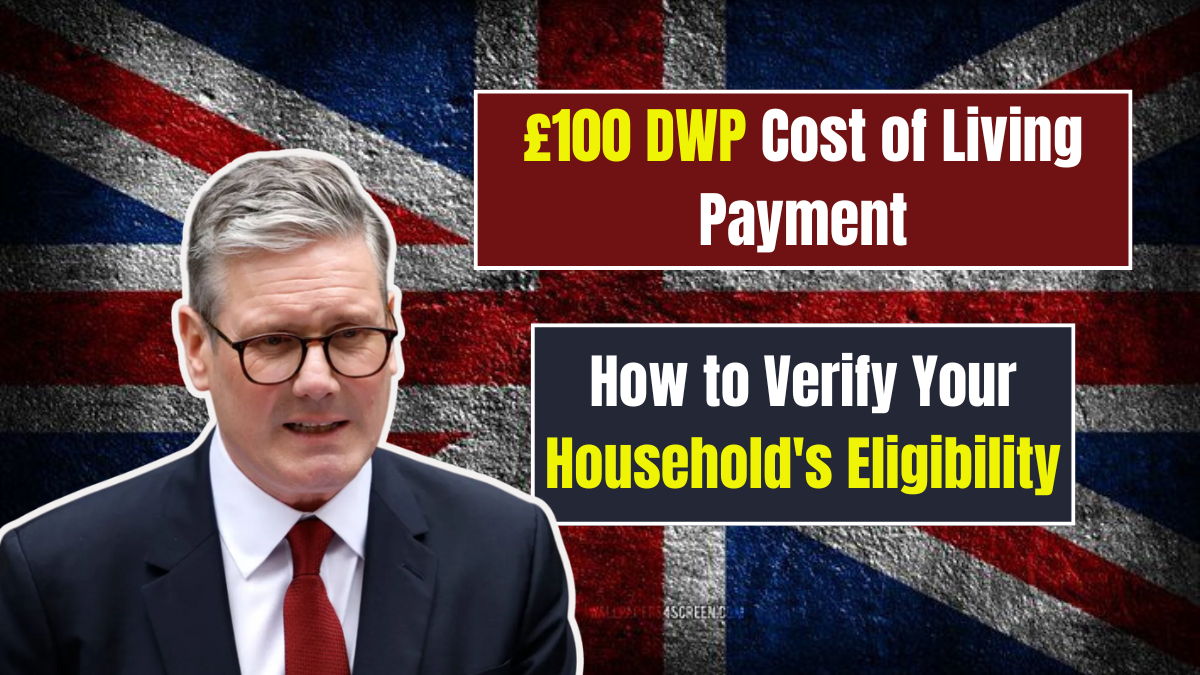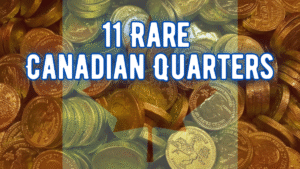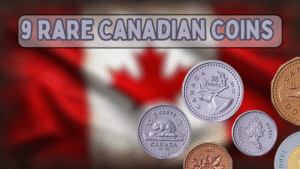£100 support payment for families with difficulties in the high cost of living in the UK
The cost of living within the UK keeps pushing upward, forcing human beings to tighten their budgets. In light of this variation, the Department for Work and Pensions (DWP) has introduced a new £100 support payment to help disadvantaged families cope with growing charges. With rising power payments, food expenses, and usual inflation, this guide is in particular beneficial to low-earning families and those receiving government benefits.
This payment of £ 100 can be a large remedy for many homes through these hard monetary times. But not everyone is completely justified automatically, so it is worth knowing the qualifying criteria so that you do not get out on the help you are for.
Who qualifies for the £100 DWP payment?
The DWP has outlined the criteria for receiving this fee, and they’re in most cases aimed toward those already claiming positive benefits or help. The primary paths to qualifying ar
Benefit claimants
If you receive any of the below benefits, you might qualify for this payment:
- Universal Credit
- Income-based Jobseeker’s Allowance (JSA)
- Income-related Employment and Support Allowance (ESA)
- Income Support
- Pension Credit
- Child Tax Credit
- Working Tax Credit
However, being a recipient of these benefits does not guarantee eligibility. The DWP has introduced additional criteria to help make this payment more accessible to those most under financial pressure.
For low-income households
In addition to some special benefits, households’ income also determines eligibility:
- Lone households with less than £23,000 a year income
- Couples or families with less than £32,000 income
- Extra considerations for dependent or disabled householders
These levels can fluctuate slightly, especially in the bigger cities like London, where living costs are higher, so income levels could be higher for people living there.
Eligibility based on vulnerabilities
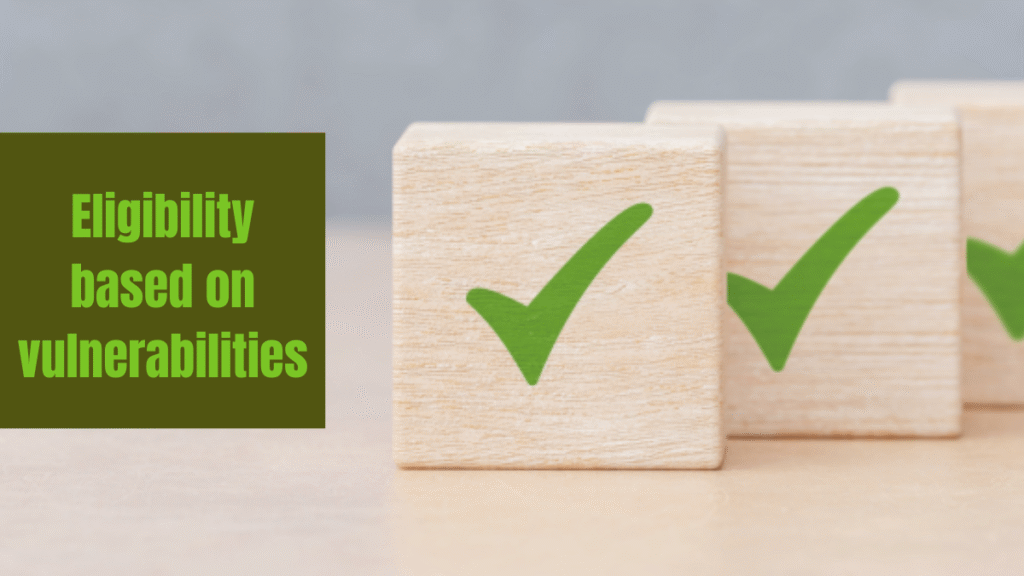
The DWP is giving priority to households that possess the following vulnerabilities:
- Under-16s
- Disabled or chronically sick
- Pensioners with few other means of support
- Carers
These vulnerabilities also have the potential to make families that are very close to the average income threshold eligible, as these situations can create extra stress no matter the income.
When and how will payments be made?
It’s well worth being aware of when and how bills can be issued so that you can take the most advantage of your entitlement and not revel in delays.
Payment method
The £100 will be paid to qualifying recipients by their usual means of receiving benefits:
- Those with a bank account will be paid through direct bank transfer.
- Those without a bank account will be paid through other payment arrangements.
- In the vast majority of cases, there will be no need for a separate application, and it will occur automatically.
This straightforward and efficient process is intended to make certain that assistance arrives in qualifying households with the least amount of administrative inconvenience.
Payment deadlines
The DWP has established the following timelines for payment issuance:
- First payments to commence in mid-May
- Payments to the majority of eligible recipients by early June
- Payments will be finalized by the end of June.
- Occasionally, delays will happen if there needs to be additional verification.
Automatic recipients of qualifying benefits won’t concern themselves with a specific payment date because they’ll be automatically paid at the same time as their regular benefits.
Process of notification
The majority of eligible homes will be notified through
- Messages within their online DWP account
- Registered addresses received via letter
- Universal Credit journal notifications for Universal Credit claimants
- Email notifications for those who chose to receive digital communications
These will notify you that you are eligible and include details of the payment date.
What to do if you are eligible but haven’t been notified?
There are times when some households are not being notified even if DWP has made all efforts, or their status is yet to be updated.
Check your status
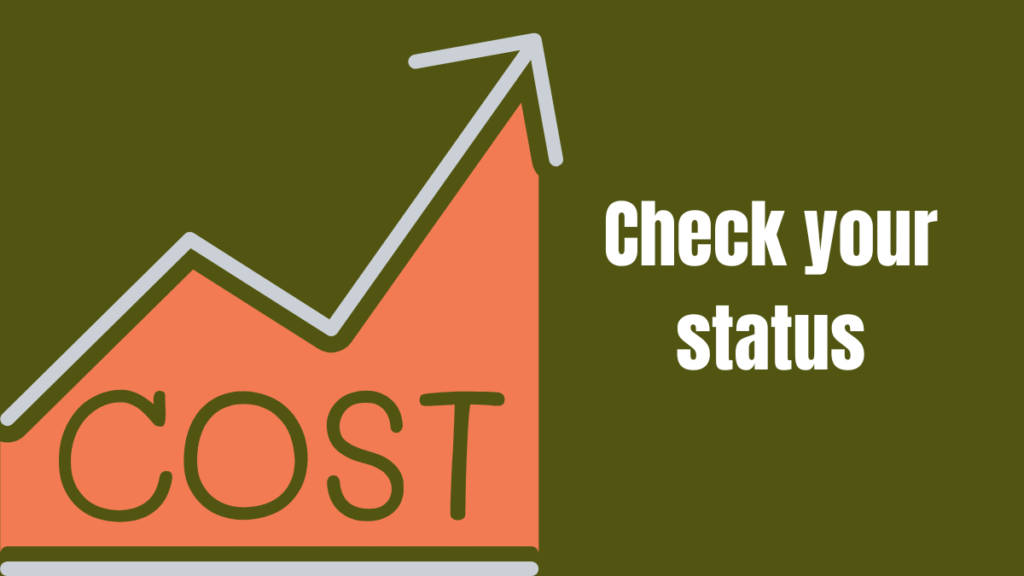
If you believe you qualify but have not received notification, you can try the following:
- Look for updates by checking your DWP account.
- Ring the DWP hotline, which is the cost of living support hotline.
- Seek the advice of the Citizens Advice Service.
- Contact your local council, who will be able to give you details on your entitlement.
Appeals Process
If you have already been found to be ineligible, but you think you are, you can:
- Ask for a mandatory reconsideration through your online account.
- Submit further evidence.
- Approach welfare rights organizations if necessary.
The standard time limit for appeals is 28 days.
How does this payment relate to other support arrangements?
The £100 payment is part of a broader package of support that assists in various ways with the cost of living crisis.
Supportive measures of support
This payment will be complemented by other support, including:
- Schemes to support energy bills
- Discounts on council tax for qualifying households
- Household support funds, which are managed by local authorities
- Higher rates of benefit in April
Additional support measures in the future
This £100 payment is giving instant relief, but the government could make further support schemes in the future.
Staying up to date with more information and upcoming schemes will help you not miss out on any support that is on its way.
Household budget planning
When you get this payment, it will be necessary to ensure you are keeping your essential spending, such as energy bills and food, first.
FAQs
1. Who qualifies for the £100 DWP payment?
People receiving benefits like Universal Credit, ESA, or Child Tax Credit, and those with low income or vulnerabilities such as disability or caring responsibilities may be eligible.
2. What are the income limits to qualify for the £100 support?
Single households earning under £23,000 or families under £32,000 may qualify. Slightly higher limits may apply in cities like London due to increased living costs.
3. How will the £100 support payment be made?
Payments will be made automatically, mainly via bank transfer. If you don’t have a bank account, the DWP will use alternative arrangements without needing a separate application.
